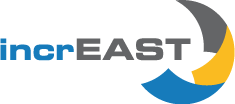

| Project of the Month - June 2011
Central Asia is an important European partner facing critical environmental challenges. Possessing certain experiences and capabilities of Earth Observation (EO) data application for solving environmental, economic, societal and other problems, this region is better prepared for the uptake of GEOSS technologies than many other clusters of developing countries. The goal of SEOCA is to promote European GEO-techlogies in the region of Central Asia as a platform solution for the regional development challenges. The project intends to take a significant step towards deeper integration of organisations from Central Asia into the activities of GEO.
The project aims at further fostering cooperative ties between the countries of Central Asia and Europe in developing and applying Earth Observation (EO) technologies for effective environmental monitoring.
It intends to take a significant step towards deeper integration of respective organizations from Central Asian countries into the activities of GEO.
The project sees its mission and overall objective to further strengthen the cooperation between Europe and the countries of Central Asia within GEO by implementing a coherent set of activities aimed at building GEO-related capacity in the domain of Earth Observation in the target countries. This global objective will be attained by pursuing the following operational objectives:
The documents will be developed by the working groups comprising European and local experts to be made available for local authorities, European organizations (users/providers), other interested entities.
|
No. |
Organisation Name |
Acronym |
Country |
website |
|
1. |
Coordinator: |
TUBerlin |
Germany |
http://www.tu-berlin.de/ |
|
2 |
Engineering, Consulting and Management Office |
ECM Office |
Germany |
http://www.ecm-office.de/ |
|
3 |
TUBITAK UZAY, Uzay Teknolojileri Arastirma Enstitusu |
TUBITAK |
Turkey |
http://www.uzay.tubitak.gov.tr/ |
|
4 |
JeoDijital Bilisim Teknoloji Madencilik Insaat Sanayi ve Ticaret Limited Sirketi |
JeoDijital |
Turkey |
http://www.jeodijital.com/ |
|
5 |
Aratos Technologies S.A. |
ARATOS |
Greece |
http://www.aratos.gr/ |
|
6 |
GIRAF PM Consultants |
GIRAF PM |
Germany |
http://www.giraf-pm.com/ |
|
7 |
Hydrometeorological Research Institute of the Centre of Hydrometeorological Servise on Cabinet of Ministers of the Republic of Uzbekistan |
NIGMI-UZHYDROMET |
Uzbekistan |
http://www.meteo.uz/ |
|
8 |
The State enterprise “Center of remote sensing and GIS technologies” |
UZSENSING |
Uzbekistan |
http://www.costeh.uz/ |
|
9 |
Tashkent State Technical University named after Abu Raikhman Beruni |
TSTU |
Uzbekistan |
http://www.tstu.uz/ |
|
10 |
Joint-stock company “The National Center of Space Researches and Technologies”
|
NCSRT |
Kazakhstan |
http://www.iki.academset.kz/ |
|
11 |
L.N. Gumilyov Eurasian National University |
ENU |
Kazakhstan |
http://www.enu.kz/ |
|
12 |
Agency of hydrometeorology on the Ministry for Emergency Situation of the Republic of Kyrgyzstan |
KGHYDROMET |
Kyrgyzstan |
http://www.meteo.ktnet.kg/kyrhymet/hymet.php |
|
13 |
State Agency of hydrometeorology of the Republic of Tadjikistan |
TJHYDROMET |
Tadjikistan |
http://www.meteo.tj/ |
|
14 |
National Institute of Deserts, Flora and Fauna of the Ministry of Environment Protection of Turkmenistan |
NIDFF
|
Turkmenistan |
http://science.gov.tm/organisations/desert_institute |
The project consortium integrates 14 partners, which is a significant number for CSA actions of that scale. At the same time, every partner has its own and clearly delineated area of responsibility, the internal organizational structure ensures that decision-making and conflict resolution will be effective, workflows and exchange of information and results between partners will be smooth and fast.
From the content point of view the consortium has 2 distinct groups of partners: expertise providers (European part of the consortium) and expertise recipients (Central Asian partners). Inside each group, there are partners with specific areas of expertise and responsibilities. For instance, TUBerlin, TUBITAK, ARATOS and JeoDijital are content providers with core expertise in EO technologies, while ECM Office and GIRAF will provide mainly organizational and structuring support to the project implementation. Similarly, on the Central Asian side there is a group of partner with similar functions to be carried out in every country of the region (like mapping and roadmapping, GEO offices and GEONETCast nodes set up, etc.), while there are partners with particular roles addressing the project or the region as a whole (for instance, TSTU and ENU will match TUBerlin to cover educational aspect of GEO CB in the region).
When it comes to the regional representation in the consortium, the Central Asian partners:
Dr. Arnold Sterenharz
Project Management Director
ECM-Office Berlin
Büro Duisburg,
Otto-Hahn-Str.5
47167 Duisburg, Germany
Tel: + 49 203 349 8167
Fax: + 49 203 728 5966
E-Mail:
This external link opens a new window:
(URL: http://www.geo-seoca.net/)